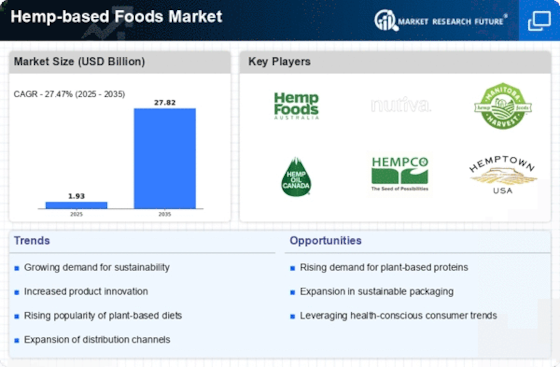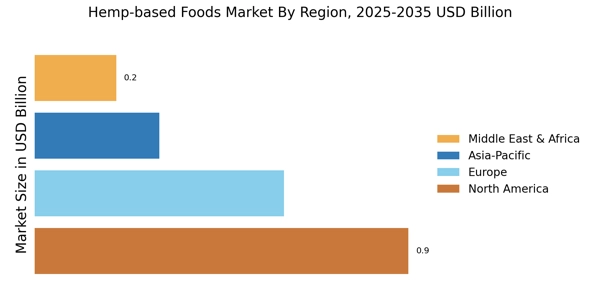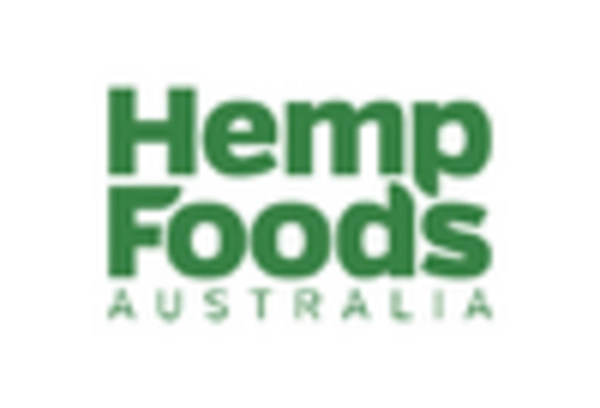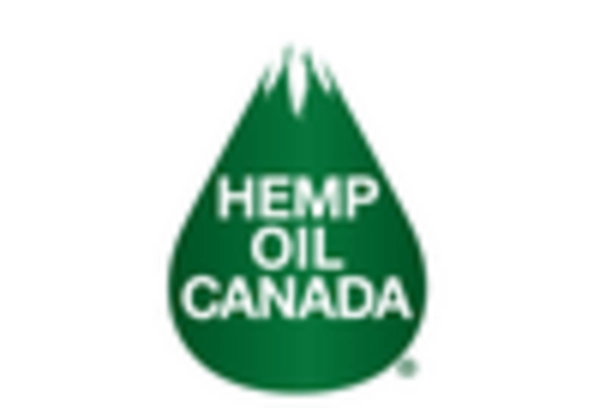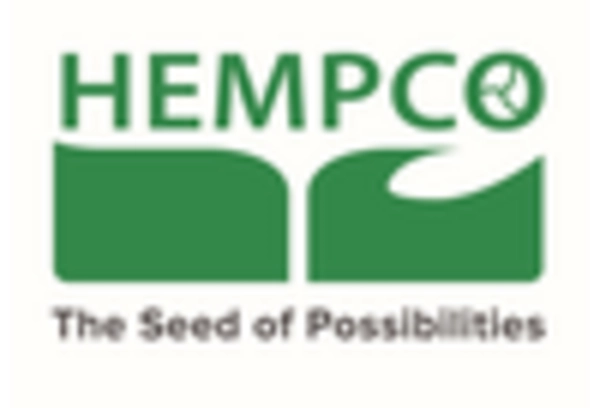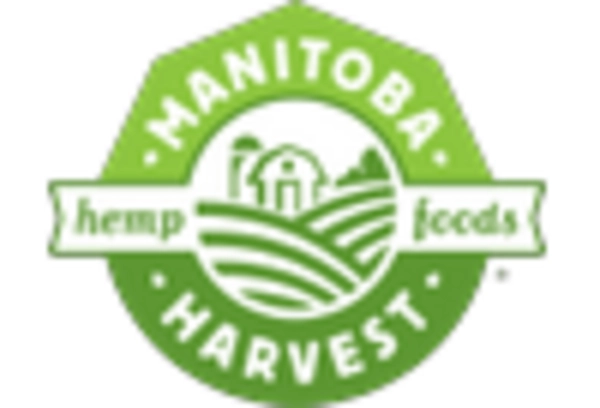Health Benefits of Hemp Seeds
The Hemp-based Foods Market is experiencing a surge in interest due to the numerous health benefits associated with hemp seeds. Rich in essential fatty acids, proteins, and vitamins, hemp seeds are increasingly recognized for their potential to support heart health, improve skin conditions, and enhance overall wellness. Research indicates that hemp seeds contain a balanced ratio of omega-3 and omega-6 fatty acids, which may contribute to reducing inflammation and promoting cardiovascular health. As consumers become more health-conscious, the demand for hemp-based foods is likely to rise, with the market projected to grow at a compound annual growth rate of approximately 20% over the next five years. This trend suggests that the Hemp-based Foods Market is well-positioned to capitalize on the growing consumer preference for nutritious and functional food options.
Innovation in Product Offerings
The Hemp-based Foods Market is characterized by continuous innovation in product offerings, which is driving consumer interest and market growth. Manufacturers are increasingly developing a diverse range of hemp-based food products, including snacks, protein powders, and dairy alternatives, to cater to evolving consumer preferences. This innovation is not only expanding the product portfolio but also enhancing the appeal of hemp-based foods to a broader audience. Market analysis suggests that the introduction of new flavors and formulations is attracting health-conscious consumers who are seeking unique and nutritious options. As companies invest in research and development to create innovative hemp-based products, the Hemp-based Foods Market is likely to experience sustained growth, reflecting the dynamic nature of consumer demands.
Consumer Awareness and Education
The Hemp-based Foods Market is witnessing a rise in consumer awareness and education regarding the benefits of hemp-based products. As information about the nutritional advantages and versatility of hemp foods becomes more accessible, consumers are increasingly inclined to incorporate these products into their diets. Educational campaigns and marketing efforts are playing a crucial role in dispelling misconceptions about hemp and its association with cannabis. This growing awareness is likely to drive demand for hemp-based foods, as consumers seek healthier and more sustainable options. Market data indicates that brands that effectively communicate the benefits of their hemp-based offerings are experiencing higher sales growth. Therefore, the Hemp-based Foods Market stands to gain from enhanced consumer knowledge and acceptance.
Regulatory Support and Legalization
The Hemp-based Foods Market is experiencing favorable conditions due to increasing regulatory support and the legalization of hemp cultivation in various regions. Governments are recognizing the economic potential of hemp as a sustainable crop, leading to the establishment of frameworks that facilitate its growth and commercialization. For instance, recent legislation has allowed for the legal production and sale of hemp-derived products, including food items, which has opened new avenues for market expansion. This regulatory environment is likely to encourage investment in the Hemp-based Foods Market, as businesses seek to capitalize on the growing consumer demand for hemp-based products. The potential for increased production and distribution capabilities may further enhance the market's growth trajectory in the coming years.
Increasing Vegan and Vegetarian Populations
The Hemp-based Foods Market is benefiting from the increasing number of individuals adopting vegan and vegetarian diets. As more consumers seek plant-based alternatives to traditional animal products, hemp-based foods are emerging as a viable option due to their high protein content and nutritional profile. Data suggests that the number of people identifying as vegan has increased by over 300% in recent years, indicating a significant shift in dietary preferences. This trend is likely to continue, as consumers become more aware of the environmental and ethical implications of their food choices. Consequently, the demand for hemp-based foods is expected to rise, as these products align with the values of health-conscious and environmentally aware consumers. The Hemp-based Foods Market is thus poised to capture a larger share of the plant-based food segment.


